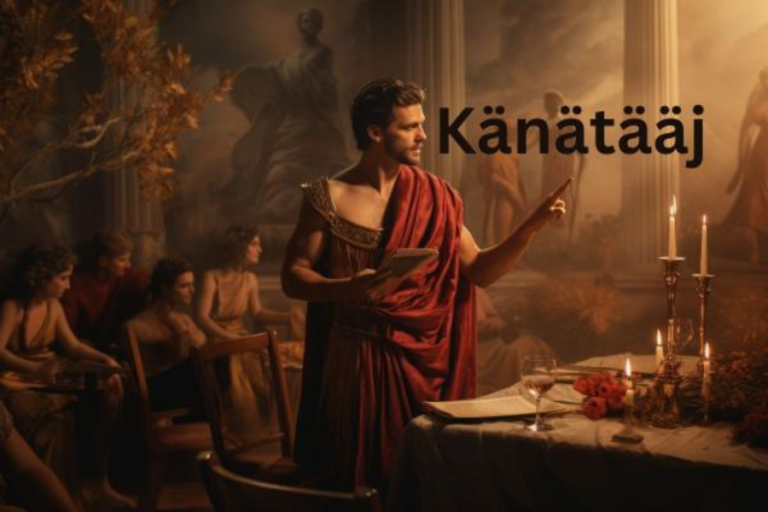Cruciais in Focus: The Significance of Critical Thinking in Modern Challenges
Introduction
Welcome to your go-to guide for uncovering the fascinating world of Cruciais! Ever been curious about what this term really means and why it’s important? Come with us as we explore the rich layers of Cruciais, from its origins to its diverse applications across different fields. This journey promises to expand your understanding and broaden your perspective. Let’s dive in and discover the many facets of Cruciais together!
What Are Cruciais?
“Cruciais” refers to a collection of cognitive abilities that are essential for evaluating information objectively and making well-informed decisions. These skills enable individuals to critically assess data, distinguish between fact and opinion, and approach problems with a rational mindset. By fostering a clear, logical thought process, “cruciais” contributes significantly to effective decision-making and stimulates a culture of inquiry and exploration.
The Meaning and Origins of Cruciais
Have you ever considered the depth of the term “cruciais”? This word, rooted in Latin, reveals layers of meaning that are waiting to be explored. Derived from “crux,” which translates to cross or crucial point, “cruciais” conveys a sense of significance and essentiality.
In different scenarios, “cruciais” transcends its role as a simple adjective; it serves as a key principle in decision-making and prioritization. Whether in personal relationships or professional settings, identifying what is truly crucial can lead to significant insights and transformations.
At the heart of understanding what is “cruciais” lies the practice of critical thinking. This involves a deep and clear analysis of situations, pinpointing the essential factors that can determine the success or failure of an outcome. Adopting this perspective can open doors to self-improvement and personal growth on various fronts.
As we continue to explore the concept of what is crucial in our lives, we gain a greater appreciation for its role in guiding our future decisions. Stay tuned as we dive deeper into the applications and impacts of this pivotal idea!
Understanding Cruciais in Different Contexts
The concept of “cruciais” reveals its importance across various areas of life, each offering a unique perspective on its significance. In academia, “cruciais” represents the fundamental principles that underpin learning and knowledge. Critical thinking is vital here, as it drives individuals to question and evaluate information thoroughly.
In the business world, understanding “cruciais” is key to making informed decisions that fuel growth and success. This involves carefully assessing options and predicting potential outcomes with accuracy, which fosters innovation and adaptability in a dynamic market environment.
On a personal level, grasping “cruciais” can lead to significant self-awareness and personal growth. Reflecting on one’s values and beliefs helps build resilience and emotional intelligence, paving the way for deeper relationships and personal satisfaction.
By understanding “cruciais” in these diverse contexts, individuals are better equipped to tackle complex challenges with clarity and purpose.
Significance of Cruciais
The importance of “cruciais” in today’s world is immense. Amidst a landscape of information overload, rapid technological changes, and complex global issues, individuals who master the art of “cruciais” are positioned to excel. Here’s why developing “cruciais” skills is essential:
Adaptability: In a rapidly changing world, the ability to think critically and adapt to new circumstances is crucial. “Cruciais” help individuals embrace change, learn from failures, and adjust strategies effectively.
Innovation: Strong “cruciais” are the foundation of effective problem-solving and decision-making, driving innovation and progress. Those adept in “cruciais” are more likely to devise creative solutions to complex challenges, leading to significant advancements across various fields.
Personal Growth: Mastering “cruciais” promotes personal development and self-improvement. By questioning assumptions, confronting biases, and exploring diverse viewpoints, individuals can expand their understanding and enrich their perspectives.
Professional Success: In the professional realm, employees with robust “cruciais” are highly valued. They can tackle difficult tasks, collaborate effectively, and significantly contribute to their organization’s success.
Overall, cultivating “cruciais” equips individuals to navigate today’s complexities with insight and efficacy.
Types of Cruciais
“Cruciais” encompass a diverse set of skills, each playing a vital role in critical thinking, decision-making, and problem-solving. Here are some key types of “cruciais”:
Critical Thinking: This involves objectively analyzing information, questioning assumptions, and evaluating evidence to make well-informed judgments and decisions.
Decision-Making: Effective decision-making requires assessing different options, weighing their advantages and disadvantages, and choosing the best course of action based on the available data and desired outcomes.
Problem-Solving: Problem-solving includes identifying issues, brainstorming possible solutions, and applying effective strategies to overcome challenges and obstacles.
Creative Thinking: Creative thinking is about generating original ideas, linking seemingly unrelated concepts, and exploring innovative approaches to address problems.
Emotional Intelligence: This involves recognizing and managing your own emotions while understanding and empathizing with the emotions of others. Emotional intelligence is essential for building strong interpersonal relationships and communicating effectively.
Mastering these aspects of “cruciais” equips individuals with the tools to navigate complex situations and drive success in various areas of life.
The Art of Critical Thinking and Self-Improvement
In the journey of self-improvement, critical thinking serves as a powerful tool for gaining fresh perspectives and deeper insights. This process involves questioning assumptions, evaluating information, and challenging existing beliefs. By sharpening our critical thinking skills, we can effectively navigate complex scenarios and make well-informed decisions.
Critical thinking complements self-improvement by prompting us to reflect on our thoughts, actions, and objectives. Through introspection and self-awareness, we can pinpoint areas for development. This journey requires a readiness to receive feedback, embrace change, and commit to personal growth.
Mastering critical thinking not only boosts our problem-solving skills but also fosters independence in our thought processes. It helps us analyze information critically, distinguish between facts and opinions, and arrive at well-supported conclusions.
In essence, integrating critical thinking with self-improvement creates a strong foundation for ongoing learning and advancement in both personal and professional realms.
Unveiling the Mystery What Is Cruciais?
Are you ready to explore the intriguing concept of Cruciais? Let’s delve into its depths and uncover what makes this term so significant.
Cruciais is more than just a word; it represents a key principle across various domains, including critical thinking and personal growth. It embodies the ideas of essentiality and necessity, prompting us to examine our decisions and actions with care.
At its heart, Cruciais is about the art of discernment and making informed choices, guiding us to achieve the best results in both our professional and personal lives. It encourages us to think critically, adapt to change, and pursue ongoing improvement.
As we unravel the layers of Cruciais, we discover its broad relevance. This concept affects not just our understanding but also our behaviors and future directions.
Join us on this journey of exploration as we decode the essence of Cruciais, shedding light on how it can lead us toward greater clarity and purpose.
How to pronounce cruciais in Portuguese
Curious about how to pronounce the word “cruciais” in Portuguese? Let me clarify this linguistic detail for you. In Portuguese, “cruciais” is pronounced as “kroo-see-ahys,” with the emphasis on the second syllable, giving it a polished and distinctive sound.
To pronounce “cruciais” correctly, try to roll your ‘r’ as native speakers do. This not only adds authenticity but also demonstrates your commitment to mastering the language. Repeating the word out loud can help you gain confidence and fluency.
Whether you’re learning Portuguese for travel, work, or personal enrichment, perfecting the pronunciation of key terms like “cruciais” will enhance your language skills and cultural insight. Next time you encounter this word, use your new pronunciation skills to impress others with your grasp of Portuguese!
Applications and Impact of Cruciais
The concept of “cruciais” has broad and impactful applications across multiple fields, demonstrating its versatility and importance in today’s world.
In healthcare, “cruciais” play a crucial role in enhancing diagnosis, treatment decisions, and patient care. By integrating critical thinking skills associated with “cruciais,” healthcare professionals can improve their decision-making processes, leading to more effective and personalized patient care.
When it comes to environmental issues, “cruciais” are vital for evaluating the impact of human activities on the planet. Applying “cruciais” in environmental research and policy-making helps us make better decisions that support sustainability and safeguard the environment for future generations.
Industries also gain from embracing “cruciais,” as it encourages innovation, efficiency, and adaptability in a dynamic market. Companies that focus on critical thinking driven by “cruciais” are better positioned to address challenges, anticipate trends, and maintain a competitive edge.
The benefits of “cruciais” extend into personal development as well. By refining critical thinking skills through the principles of “cruciais,” individuals can boost their problem-solving capabilities, enhance their decision-making, and improve overall cognitive flexibility.
Potential Applications of Cruciais
The concept of “cruciais” offers vast potential across various sectors and disciplines. In healthcare, “cruciais” can transform how medical professionals approach patient care and treatment. By integrating critical thinking skills into diagnostic and decision-making processes, “cruciais” can enhance the accuracy of assessments and improve patient outcomes.
In the environmental arena, understanding “cruciais” can guide organizations in developing sustainable practices that emphasize conservation and minimize ecological impact. Industries that adopt “cruciais” can drive innovation, enhance problem-solving capabilities, and refine strategic planning. Encouraging critical thinking about challenges and opportunities helps businesses remain competitive in a rapidly changing market.
Personal development also benefits greatly from embracing “cruciais” principles. Individuals who hone their critical thinking skills can navigate life’s complexities with greater confidence and clarity. As we explore the diverse applications of “cruciais,” its potential to contribute to a more promising future becomes increasingly evident.
Healthcare
Healthcare is a vital component of our lives, affecting individuals and communities globally. The concept of “cruciais” plays a crucial role in this field, influencing both decision-making and patient outcomes. From advancing medical research to refining treatment protocols, understanding “cruciais” enables healthcare professionals to handle complex situations with accuracy and insight.
In healthcare environments, critical thinking skills are essential for diagnosing diseases, formulating effective treatment plans, and enhancing patient care. Medical professionals depend on their ability to evaluate information objectively and make evidence-based decisions.
The influence of “cruciais” in healthcare also extends to public health initiatives, policy formulation, and ethical considerations. Grasping how “cruciais” affect healthcare policies can lead to better access to high-quality care for all.
Acknowledging the role of “cruciais” in healthcare helps us understand its significant impact on fostering a healthier future for everyone.
Environmental Impact
Our environment is a fragile system that depends on maintaining a careful balance to stay healthy. The concept of “cruciais” plays a crucial role in shaping our environmental impact and advancing sustainability efforts. By influencing green technologies and encouraging eco-friendly practices, “cruciais” has the potential to revolutionize how we engage with the natural world.
In an era where climate change and environmental degradation are major concerns, understanding and applying “cruciais” can steer us toward more sustainable solutions. Incorporating critical thinking into resource management, waste reduction, and conservation can significantly benefit the environment for future generations.
From supporting renewable energy to adopting circular economy principles, recognizing the value of “cruciais” helps us make well-informed decisions that support both the planet and society. As we address complex environmental issues, keeping “cruciais” in focus can lead to innovative approaches that enhance planetary health and overall well-being.
Influence on Industries
The concept of “cruciais” has a profound impact across all industries, shaping how businesses operate and make decisions. In today’s dynamic environment, companies must continuously adapt to maintain a competitive edge. “Cruciais” serves as a guiding force, helping industry leaders make informed choices that drive success.
From manufacturing to technology, “cruciais” plays a pivotal role in various sectors. Businesses rely on critical thinking to innovate, solve problems, and address complex challenges effectively. By embracing “cruciais,” companies can uncover growth opportunities, manage risks, and enhance their operations.
In competitive markets, understanding and leveraging “cruciais” can be transformative for businesses aiming for excellence. Cultivating a culture of critical thinking within organizations fosters innovation and supports sustainable success in an ever-evolving landscape.
The Role of Cruciais in Personal Development
Personal development is a journey of self-discovery and growth, where “cruciais” play a crucial role. This concept encourages individuals to think critically and reflect on their choices, which can significantly enhance problem-solving skills and decision-making abilities.
“Cruciais” push people to step beyond their comfort zones and consider new perspectives. By engaging in critical thinking, individuals can gain a deeper understanding of themselves and others, leading to better communication and stronger relationships. This approach acts as a catalyst for personal transformation, promoting adaptability and resilience when facing challenges.
Integrating “cruciais” into personal development efforts can boost self-awareness and emotional intelligence. This increased awareness helps individuals navigate life’s challenges with greater clarity and purpose. By embracing critical thinking, individuals can unlock their full potential and lead more authentic lives.
Conclusion
In exploring the concept of “cruciais,” we’ve uncovered its profound significance across various facets of life. From its origins rooted in the Latin word “crux,” meaning a crucial point, to its diverse applications in critical thinking, decision-making, and personal growth, “cruciais” embodies the essence of essential skills that drive success and innovation.
Mastering “cruciais” equips individuals with the ability to navigate complex scenarios with clarity and effectiveness. In healthcare, it enhances patient care and decision-making. In environmental contexts, it guides sustainable practices and helps address pressing global issues. Across industries, “cruciais” fosters innovation and competitive advantage. On a personal level, it promotes self-awareness, emotional intelligence, and personal growth.
Embracing and refining “cruciais” skills opens doors to a more informed, adaptable, and successful life. By understanding and applying these principles, we can improve our decision-making processes, drive positive change, and achieve our goals with greater precision and insight.
FAQs
1. What does the term “cruciais” mean?
“Cruciais” refers to essential cognitive abilities crucial for evaluating information and making well-informed decisions. It involves critical thinking, decision-making, problem-solving, and other skills necessary for objective analysis and effective action.
2. What is the origin of the word “cruciais”?
The word “cruciais” is derived from the Latin term “crux,” meaning a crucial point or cross. It signifies something of great importance or essential nature.
3. How does “cruciais” apply to personal development?
In personal development, “cruciais” involve critical thinking and self-reflection, which enhance problem-solving skills, emotional intelligence, and personal growth. It encourages individuals to question assumptions and embrace new perspectives.
4. Why is “cruciais” important in healthcare?
In healthcare, “cruciais” are vital for improving decision-making, patient care, and treatment outcomes. Critical thinking skills associated with “cruciais” help healthcare professionals assess information accurately and make evidence-based decisions.
5. How does “cruciais” impact environmental practices?
“Cruciais” guide sustainable practices and environmental decision-making by encouraging critical evaluation of human activities’ impact on the planet. It supports the development of eco-friendly solutions and policies.
6. What role does “cruciais” play in industries?
In industries, “cruciais” help businesses innovate, solve complex problems, and adapt to changing markets. Embracing these principles fosters growth, efficiency, and a competitive edge.
7. How can I improve my “cruciais” skills?
Improving “cruciais” skills involves practicing critical thinking, reflecting on personal decisions, seeking feedback, and staying informed. Engaging in continuous learning and challenging your assumptions can also enhance these abilities.
Unlock the latest news and updates on karingkarla


